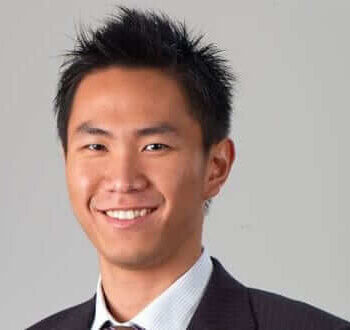Today, The Asian Entrepreneur speaks to Christopher Boseak, the Founder of AdvaSchedule.com.
Tell us about yourself Christopher.
I am a Software Engineer and Entrepreneur. I have a beautiful wife and recently had a baby boy named Liam. I have 2 bachelor’s degrees, one in Computer Science and one in Business. I grew up in Michigan with entrepreneurial parents that had it in their blood to start a business. They have had every business you can think of from pet supplies, promotional supplies, antique brokers, real estate development, and the list goes on. Growing up, I constantly dabbled in being an entrepreneur but I never actually realized it or referred to myself as one. It wasn’t until I got into software that anything is possible and that I was going to be the guy to make that happen. I am an ideas guy, I keep a notebook with me that I constantly write ideas down in. I don’t plan to use every idea, mostly because some of them are pretty terrible, but I never want to lose an opportunity to create something great because I didn’t internalize the thought in the moment.
And, in your own words what do you do?
I am a Software Engineer and Entrepreneur.
What led you to your current business?
Anyone who knows me, knows that I write everything down and put everything on my google calendar. It was not always like this, there was a time when I was consistently late and forgetful. In my efforts to be more productive, I began creating task lists and adding reminders to my calendar. My issue was that I was spending so much time adding meetings to my calendar that it took away from actual work. Finally, I wrote software so that others could schedule meetings directly into my calendar. I initially wrote it for myself with the hopes that someone else would find it useful.
Could you walk us through your process of developing your business?
I followed a plan of developing the minimum viable product, one with the bare minimum needed to work, so that I could figure out if this was something people actually wanted. After I built a working version of the site, I had friends and family use it and used their feedback to drive the direction of the features. I have used this approach many times, the beauty of it is that it helps me move on from ideas that will not get traction.
Did you encounter any particular difficulties in the beginning?
Yes! One challenge that I faced in the beginning was sorting through the feedback from the beta testers. This sounds like a good problem to have but it became information overload. How do we know what features users actually want and which ones are just kind of “that would be cool” ideas? I overcame this by taking all of the data and having the users prioritize it for me. So instead of just asking “what features would you like?” We took the data from the beta tests and organized them into a feature voting system where the users would rank them based on timeframes of when they would like us to develop that feature. An example of this is that we kept hearing that users wanted the ability to customize calendars but when we sent it out in a voting system, almost every user said that this was a low priority.
What is your long term plan?
My long term plan is to build a suite of productivity solutions. I want to add value to people’s lives and help them achieve their goals. An example, I have an open inbox site in development that will allow users to send spam to our mailbox and retrieve it, the website is www.mailspire.com, the backend is built, we are just working on the user interface.
Could you share with us some industry insights?
The software industry is about finding a good balance between innovation and perfection. You have to find something that people will use that hasn’t already been done, or if it has been done that you can do better.
What are some important lessons you’ve learnt about entrepreneurship?
Entrepreneurship has taught me that failing is okay and that failing can take many forms. It is okay to fail because I learn so much in the experience. Sometimes failing is realizing that an idea you had is not practical and that you have to pivot into a new idea. Sometimes failing is having a business that does not turn a profit. It sets the tone, that all is okay as long as I am still moving forward.
Any tips for achieving success?
My tip for success is to pound the pavement and throw everything you have into your business. I often hear people say “I wish I would have thought of that first” but it’s not enough to be first, you have to work harder than everyone around you. One of my favorite quotes is by Mark Cuban and it goes “Work like there is someone working 24 hours a day to take it away from you.”
Connect
Website: http://advaschedule.com
LinkedIn: https://www.linkedin.com/in/christopher-boseak-816b3b57





























